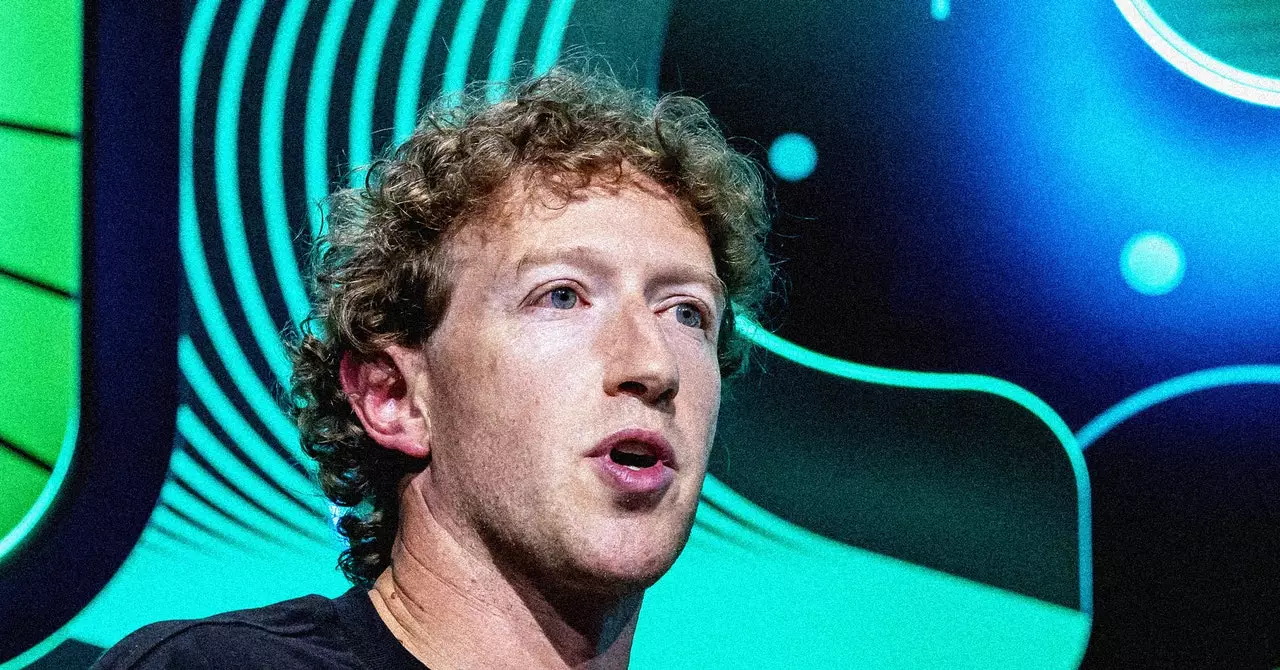In the rapidly shifting landscape of social media, one figure has become synonymous with the battle over content moderation: Mark Zuckerberg. Once an advocate for stricter control over harmful content, Zuckerberg’s recent shift towards a more hands-off approach raises critical questions about the role of social media platforms in the dissemination of information. This article delves into Zuckerberg’s evolving perspective, contrasting his early views on content moderation with his current stance, and the implications for journalism and public trust.
Back in 2018, Mark Zuckerberg presented himself as a proactive leader willing to address the challenges posed by disinformation and hate speech on Facebook. During an intimate conversation in his sunroom, he shared plans for strengthening content moderation by increasing the number of human moderators and integrating artificial intelligence to preemptively filter harmful posts. At that time, Zuckerberg recognized the gravity of the issue, acknowledging the destructive nature of toxic content that permeated the platform. The emphasis was on community safety, with Zuckerberg asserting that the company’s responsibility extended beyond mere tools for expression to a more nuanced engagement with content oversight.
Zuckerberg’s commitment to tackling misinformation was arguably a necessary evolution for a platform that had garnered widespread criticism for its inaction in the face of manipulative content. With a pledge to invest in resources for content moderation and uphold the principles of accountability, Zuckerberg appeared to be at the forefront of a digital renaissance aimed at restoring users’ faith in social media.
Fast forward to 2025, and Zuckerberg’s narrative has taken a dramatic shift. In a brief yet impactful video, he articulated a retreat from the initial commitment to content moderation, positioning the previous strategies as a regrettable acquiescence to external pressures concerning content related to COVID-19 and other sensitive topics. The move to eliminate proactive content takedowns in favor of “community notes” speaks volumes about the current cultural and political climate. This new approach, characterized by empowering users to assess the credibility of content, seems to undermine the foundational principles of thorough fact-checking that were previously championed.
By labeling legacy media as a pejorative, Zuckerberg appears to dismiss the journalistic standards that serve as a bulwark against misinformation. His recent rhetoric suggests that traditional news-gathering practices are no longer deemed essential, thereby fostering an environment where users must navigate the veracity of competing narratives without the guidance of established media institutions. This transition raises alarms about the implications for informed public discourse.
Zuckerberg’s articulation of a supposed dichotomy between free expression and content moderation presents a problematic oversimplification of the issues at hand. While many advocate for free speech as a fundamental right, it is crucial to recognize that freedom of expression does not equate to an absence of accountability. By diluting the standards of content validity and prioritizing user-generated assessments, Zuckerberg risks creating an ecosystem rife with misinformation, where sensational claims sideline factual reporting.
The misguided perception that community-driven veracity can rehabilitate the integrity of discourse disregards the vital role that journalistic rigor plays in a democratic society. Fostering open discussions among users may yield diverse perspectives, but it does not inherently facilitate truth-seeking. Instead, it encourages an environment where narratives may thrive without a legitimate basis, potentially leading the public down a treacherous path of misinformation and divisiveness.
Reckoning with the Consequences
The consequences of Zuckerberg’s policy shift extend beyond the immediate ecosystem of Facebook; they point to a broader societal crisis regarding trust in information. The erosion of confidence in established journalistic institutions, combined with the celebration of alternative narratives propagated through social media, embodies a fundamental challenge for modern democracies. If social media platforms such as Facebook prioritize subjective community notes over established facts, the public’s ability to discern truth will be severely compromised.
Reflecting on historical precedents, it is evident that empowering disinformation can have dire ramifications. When leaders intentionally discredit reliable sources, as seen in rhetoric from figures like Donald Trump, the implications for public understanding become profound. The tragedies of misinformation, particularly during crises, underscore the necessity of responsible content management.
As Zuckerberg recalibrates Facebook’s approach to content moderation, the challenge remains: how to balance the ideal of free expression with the fundamental need for trustworthy information. The awakening of social media platforms to their societal responsibilities is paramount, as unchecked misinformation can dismantle the very fabric of democracy. In the pursuit of transparency and accountability, it is vital for leaders like Zuckerberg to recognize that fostering an environment conducive to truth is not only a moral obligation but also an indispensable criterion for ensuring the vitality of public discourse in the digital age.

